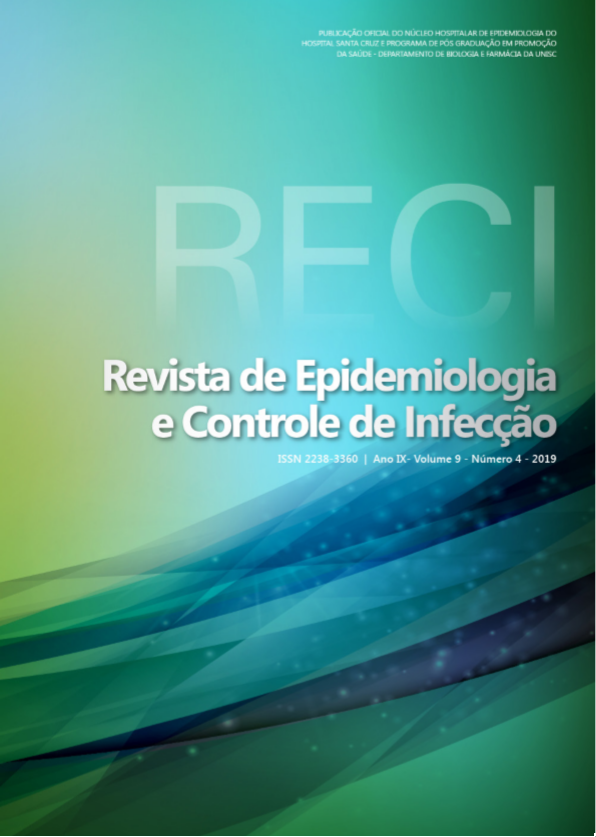Cardiac surgery: strategies for coping with patients with surgical wound infection
DOI:
https://doi.org/10.17058/.v9i4.13422Keywords:
Thoracic Surgery. Surgical Wound Infection. Psychological Adaptation.Abstract
Background and Objectives: Surgical site infection is one of the adversities that can affect hospitalized patients after cardiac surgery. Each patient will react to it in a particular way, as well as develop coping mechanisms to get through the stressing event. This study aims to identify the predominant coping strategy in patients with surgical site infection after a cardiac surgery. Methods: Descriptive, cross sectional and quantitative studies, conducted between December 2017 and December 2018 at a cardiac referral hospital in the state of Rio Grande do Sul. The data collection was performed through a sociodemographic data questionnaire and applying the Ways of Coping Scale (Wocs). Results: The study included 33 post surgical patients with mean age of 62,4±8,8, of whom 69,7% had coronary artery bypass surgery, followed by surgical site infection, being chest infection the most prevalent (67%). The preponderant coping mechanism observed was the one based on the stressor (57,6%), followed by the one based on religious/fantasy thinking (27,3%), the one based on social support (15,2%) and the one based on emotion (0%). Conclusion: These data represent that patients with surgical site infection associated with cardiac surgery use coping that tends to be more adaptive and healthy, since their goal is to solve the problem.Downloads
Downloads
Published
How to Cite
Issue
Section
License
The author must state that the paper is original (has not been published previously), not infringing any copyright or other ownership right involving third parties. Once the paper is submitted, the Journal reserves the right to make normative changes, such as spelling and grammar, in order to maintain the language standard, but respecting the author’s style. The published papers become ownership of RECI, considering that all the opinions expressed by the authors are their responsibility. Because we are an open access journal, we allow free use of articles in educational and scientific applications provided the source is cited under the Creative Commons CC-BY license.


